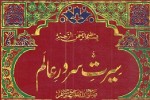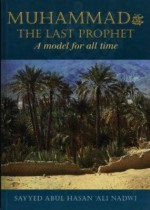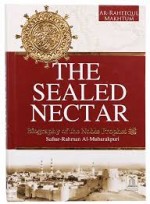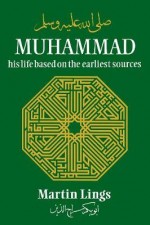WHEN Muhammadï·º became Prophet, women of that time were deprived of their human rights. They were just a comfort material for men and a source of entertainment. The men kept and treated them as they wished.
Men were disappointed and ashamed at the birth of a girl and buried them alive. In the Qur’an, Allah says:
“And when the girl [who was] buried alive is asked for what sin she was killed” (81: 8-9).
Prophet Muhammadï·º said, “Whoever did anything in the pre-Islamic era, after embracing Islam, Allah forgives everything. Don’t make them remember bad deeds of their past” (Sunan Dari, Bab Ma Kana Alaihi Al-Naas: 1/153).
Many Arab tribes did not bury baby girls alive, but they still did not receive the news of such births with happiness. They considered girls as a life-long burden.
Women did not share in the wealth and property of their fathers or husbands. Sometimes a woman would be included in an inheritance, and the most powerful male in the family would take physical possession of her.
When the Prophet attained prophethood, he bestowed a place of honour for women and girls in the society. All cruelty and exploitation were abolished one by one.
The following are attributed to Prophet Muhammadï·º (peace upon him):
“He who brings up three baby girls would be protected from the fire of the Heaven.”
“The best among you is the one who takes good care of his wife and children. I am the best among you in regards to my wife and children” (Sahih Ibne Haban, Hadith No 4177).
“I make a will to you for good behaviour towards women. They are under you and bound by you” (Sunan Ibne Majah, Hadith No. 10851).
“Heaven is under the feet of the mother” (Masnad Al-Shihab, Hadith No. 119).
Similarly, he connected the hereafter of the people and their consequence with service to mothers, good education and training for girls, and kind behaviour towards widows. By doing this he lifted the status of women in the society to a very high level. He not only provided women their rights but also the status of respect and honour in the Muslim society and brought them at par with men in various activities of life.
Whenever a verse was revealed, Prophet Muhammadï·º (peace upon him) would assemble men to listen to these verses and would dictate them to the writers. In the same way, he would assemble the women to listen and for dictation. Both men and women were assembled for education in the understanding of the Holy Qur’an. This is the reason that the role played by men in propagating the religion and sacrifice and martyrdom was similar to the role played by women. The role of women in the struggle of DEEN was no less than that of the men. Female companions would go into the battle field and render their services.
Be it the prophet era or the period of the Rashidun Caliphate, Muslim women never felt as if they were abused or their rights had been disposed. If a Muslim woman today is victimized, oppressed, and deprived of her rights, it is not the fault of the religion of mercy brought by Prophet Muhammadï·º (peace upon him). It is the fault of Muslims who, although the carriers of this merciful DEEN (religion, way of life) are alienated from its teachings. Those who claim the love and affection of the Prophet are often ignorant of the Prophet’s model.
How was the Prophet’s model in matters related to the pious wives? How did he live with his pious wives in the house?
At home, he would not be like a ruler or an officer, but like an assisting brother and a kind administrator. He would enter the house, and if his pious wives were busy in some household chores, he would help them. He would clean the house and wash, do laundry, and mend clothing. He would be just among his pious wives and never preferred any one on others. He would give equal solace and consideration to everyone. He would give everyone equal love and affection. Initially the number of wives each man could have was not specified in the Islamic Shariah.
It was more convenient for Prophet Muhammadï·º (peace upon him) to educate the men than it was to educate women. The best way was for him to marry wise and vibrant women and train them to teach other women. For this purpose, he married many. This helped the work of preaching, and eventually Islam became the glow of every house, everyone’s heartbeat, and goal of every person.
During the revelation of Qur’an, Allah ordered every man to keep no more than four wives. In general, Muslim men and women found that not difficult. One who had more than four wives would select any four through a draw and divorce the rest. Those who were divorced would, after completing their waiting period, get married to others.
That was the spiritual environment of love and brotherhood, goodness and piety. There was no issue of virgin or non-virgin in this environment. In this way, a better arrangement was made for divorced women, and no one suffered undue hardship.
However, this was a difficult phase for Prophet Muhammadï·º (peace upon him) and his pious wives who were the mothers of all Muslims. If any of them were divorced, they could not marry anyone and would remain always alone. Being generous, Prophet Muhammadï·º (peace upon him) decided that, instead of divorcing or separating from any wife, he would separate himself from all and would wait for a divine order regarding them.
All these marriages were made for one purpose –to preach Islam among women, religious training and education of women, and carrying out the mission in the world. Except for his marriage of Hazrat Khadija (may Allah be pleased with her) the Prophet’s marriages took place when he was elderly. The previous Arab culture, despite its overall development and charm, had neither given independence to women or protected their honor and dignity. Prophet Muhammadï·º’s impact on society changed the lives of women in a dramatically improved way.
Before the prophethood of Muhammadï·º (peace upon him), many people were trapped in slavery. Slaves were deprived of all human rights and were totally unknown to the concept of respect and independence. The Prophet raised his voice against slavery. He reminded people that everyone living on this earth are children of one set of parents, Adam and Eve and hence are all brothers and sisters. No one is ruler or subject by birth. No one is lord or a slave.
The Prophet (peace upon him) clearly announced:
“An Arab has no superiority over a non-Arab and a non-Arab has no superiority over an Arab; also a white has no superiority over a black and a black does not have any superiority over a white.”
The curse of slavery had been imposed for many years and had become a way of life; therefore, slavery could not be ended suddenly. It would have been a hardship on them if slaves had gained their independence all at once, so slavery was ended gradually. In the meantime, Prophet Muhammadï·º (peace upon him) gave instructions concerning the fair treatment of slaves.
Prophet Muhammadï·º (peace upon him) said:
“Good behavior with slaves! Good behavior with slaves! Good behavior with slaves! Let them eat the same as you eat; let them wear the same as you wear. If they commit a mistake which cannot be forgiven, then sell them to someone else instead of keeping them and torturing them” (Masnad Ahmad, Hadith No. 16409).
The day he died, the last word that could be heard from him was:
“Organize prayers. Good behavior with slaves!” (Al-Seerah Al-Nabawiyah, Imam Ibne Katheer 4/472).
This training and education of the Prophet (peace upon him) and the good behavior of the companions had so much impact on the slaves, who had previously been abused and exploited, that they slowly began to become spiritually conscious. Then the time came that they started taking big responsibilities in the Muslim society. The first commander-in-chief of the Islamic army which fought the Roman Empire was Zaid bin Harithahؓ who was freed slave of Prophet Muhammadﷺ.
After raising the status of slaves, Prophet Muhammadï·º (peace upon him) encouraged the entire world to pursue human rights and dignity.
(Translated, abridged, and edited from the Urdu article written by Maulana Muhammad Inayatullah Subhani, published in Dawat, New Delhi, October 22, 2016.)






